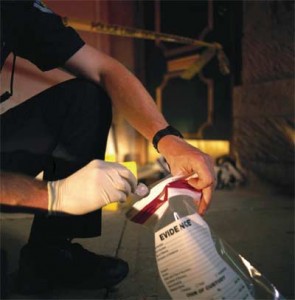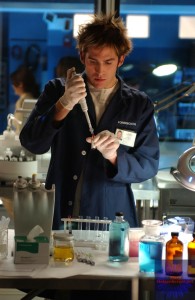I hate it when people ask, “So what do you do for a living?”
“I’m a product manager at the CBC for web analytics” At about this time the person I am talking to begins to blank out and wait for their turn to speak. My father has resorted to just saying “He works for CBC…on computers.”
It isn’t that what I do is uninteresting, or that difficult to understand. It’s just that you have to have a certain bend of mind to appreciate it. Chris Berry, over at Eyes on Analytics has been able to boil analytics to 7 axioms. As a result it is easy to understand for other web analytics people, but it is still too intellectual and abstract for the general public in my opinion.
 Thinking of popular culture references I have likened my job, and that of analysts to the TV show CSI. Like CSI there are two very distinct groups of individuals involved. There are the field agents and the research people. The field agents, like myself, collect the evidence. I only collect evidence. I do not interpret what the evidence means. I attempt to ensure proper collection protocol is followed so that the “chain of evidence” is intact. This ensures that should someone question the evidence later on my ass is covered. That doesn’t mean I can’t do the research part of it. Like in the TV show you will often see Grissom collect some evidence and then return to the lab and analyze it. I do that as well, however, my strength lies in knowing what to collect and the best way to collect it. I look to my “Hodges” to analyze the evidence.
Thinking of popular culture references I have likened my job, and that of analysts to the TV show CSI. Like CSI there are two very distinct groups of individuals involved. There are the field agents and the research people. The field agents, like myself, collect the evidence. I only collect evidence. I do not interpret what the evidence means. I attempt to ensure proper collection protocol is followed so that the “chain of evidence” is intact. This ensures that should someone question the evidence later on my ass is covered. That doesn’t mean I can’t do the research part of it. Like in the TV show you will often see Grissom collect some evidence and then return to the lab and analyze it. I do that as well, however, my strength lies in knowing what to collect and the best way to collect it. I look to my “Hodges” to analyze the evidence.
Let me give you an example. If you wanted to collect data on podcasts, what is the best way to go about it? There are a number of options available. You could provide links to MP3 files on your site and track clicks. But you would miss out on iTunes distribution and RSS subscriptions. You could provide a link to RSS subscriptions but you wouldn’t know how many actively used it or deleted it later on. 
You could collect server side log files, but then you would miss out on the rich meta-data; “ntl_show1_sept122009.mp3” doesn’t mean much does it? My job is to figure out how to get the best out of all methods and ensure that it is accurate. Once the collection is properly set up. I don’t really care what the results are. I have moved on to the next collection.
The analysts are like the lab techs at CSI. They take the evidence that is collected and figure out what it means. Also, like the lab techs on TV they are encouraged to distance themselves from the numbers. Allowing their emotions to impact their stated results jeopardizes the integrity of the department.
In web analytics, like CSI, they use fancy graphics to illustrate what has happened. Can anyone other than a tech actually read a DNA sequence? Hell no, but you can see when the little lines match on the DNA profiles and you see when the fingerprint overlays the other one if they match or not.
CSI has taken some very complicated forensics and made them into short, 20 second rock videos of science. Like showing how the molecules in heroin combine to form new compound which then glom onto synapses in place of dopamine. Our analysts use these graphics to illustrate how the consolidated video player has increased the behavior of video watching and increased page views as a result. Complicated stuff but simple when viewed in a chart.
So there you have it, next time someone asks what I do for a living I will just reply, “I’m just like Grissom on CSI.”
